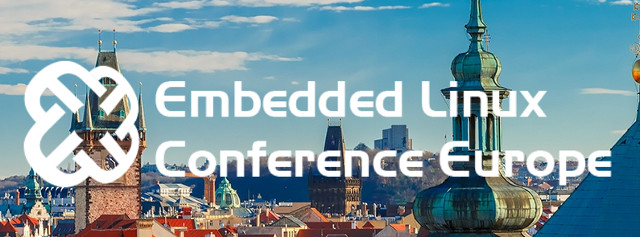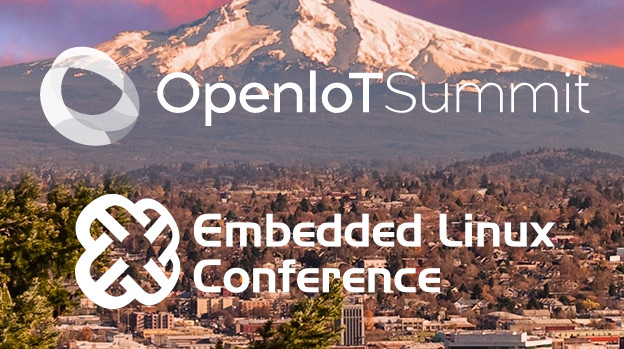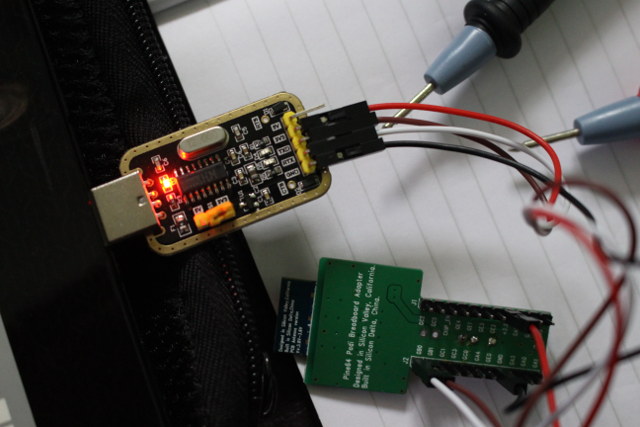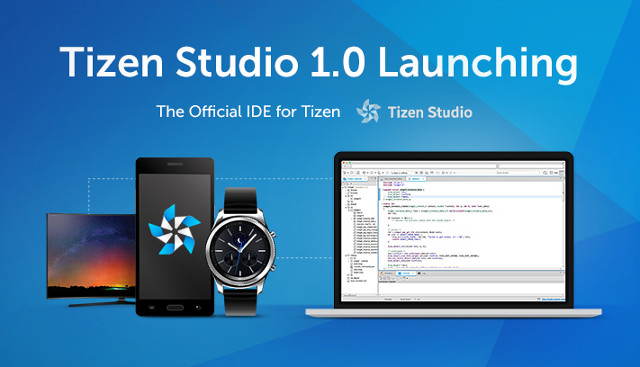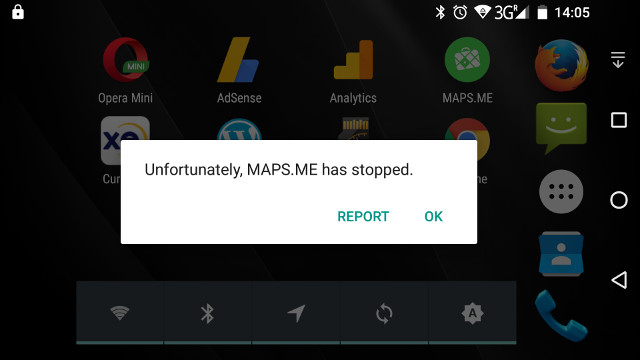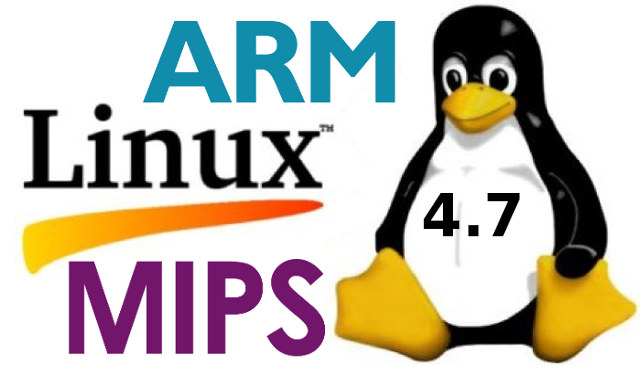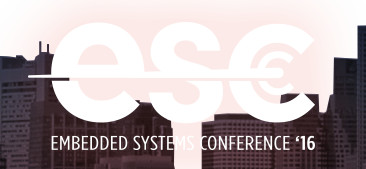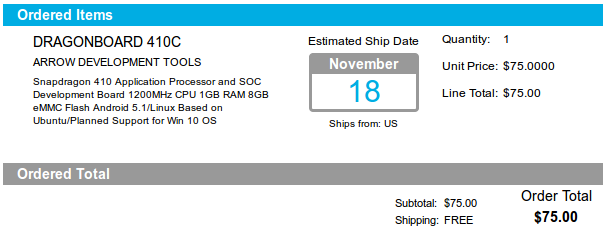The Embedded Linux Conference & IoT summit 2017 took place in the US earlier this year in February, but there will soon be a similar event with the Embedded Linux Conference *& Open Source Summit Europe 2017 to take up in Europe on October 23 – 25 in Prague, Czech Republic, and the Linux Foundation has just published the schedule. It’s always useful to find out what is being discussed during such events, even if you are not going to attend, so I went through the different sessions, and compose my own virtual schedule with some of the ones I find the most interesting. Monday, October 23 11:15 – 11:55 – An Introduction to SPI-NOR Subsystem – Vignesh Raghavendra, Texas Instruments India Modern day embedded systems have dedicated SPI controllers to support NOR flashes. They have many hardware level features to increase the ease and efficiency of accessing SPI NOR […]
Embedded Linux Conference & OpenIoT Summit 2017 Schedule
The Embedded Linux Conference 2017 and the OpenIoT Summit 2017 will take place earlier than last year, on February 20 – 23, 2017 in Portland, Oregon, USA. This will be the 12th year for ELC, where kernel & system developers, userspace developers, and product vendors meet and collaborate. The schedule has been posted on the Linux Foundation website, and whether you’re going to attend or not, it’s always informative to check out the topics. So as usual, I’ll make a virtual schedule for all 5 days. Monday, February 20 For the first day, the selection is easy, as choices are limited, and the official first day it actually on Tuesday. You can either attend a full-day paid training sessions entitled “Building A Low Powered Smart Appliance Workshop“, and the only session that day: 14:30 – 15:20 – Over-the-air (OTA) Software Updates without Downtime or Service Disruption, by Alfred Bratterud, IncludeOS […]
Getting Started with Pine64 PADI IoT Stamp – Part 2: Serial Console, GCC SDK, Flashing & Debugging Code
PADI IoT Stamp module powered by Realtek RTL8710AF ARM Cortex M3 WiFi SoC is a potential competitor to Espressif ESP8266 modules. Pine64, the manufacturer of the module, sent me their kit with a $2 IoT stamp, a breakout board, a USB to TTL debug board and a J-Link debug board. In the first part of the review I’ve shown the hardware and how to assemble PADI IoT stamp kit. In the second part I’m going to write a tutorial / getting start guide showing how to control the board with AT commands, build the firmware with GCC SDK, and finally demonstrate how to flash and debug the firmware with the J-Link debugger. The Quick Start Guide indicates you need to connect the USB to TTL debug board to UART2 instead of UART1 as I did on the very similar B&T RTL-00 RTL8710AF module, and set connection settings to 38400 8N1. […]
Tizen Studio 1.0 Replaces Tizen SDK for Smartphones, Wearables and TVs
Tizen has converged all Tizen SDK for mobile, wearables, and TV to Tizen Studio since the beginning of the month, and released Tizen Studio 1.0 for developers interested in developing app for Tizen smartphones, TVs and/or smartwatches such as the latest Samsung Gear S3. So instead, you’ll now be able to select the targets platform and profiles within Tizen Studio. Some of the key changes made to the development environment in Tizen Studio 1.0 include: Launching tools: Installer, Uninstaller, and Package Manager Developing tools: IDE perspective theme, Project Wizard, Certificate Manager, and Menu and tool icons UI tools: UI Builder, Component Designer, and EDC Editor Testing tools: Emulator Testing tools: Dynamic Analyzer for memory and CPU profiling Other improvements in Tizen application development environment Tizen Studio is available for the 32-bit and 64-bit version of Windows, and Ubuntu, as well as for Mac OS with one version with the graphics […]
How Fix Apps Crashing at Launch in Android 6.0 (in Mediatek Phones) ?
I’ve recently received a new Android 6.0 Marshmallow smartphone powered by Mediatek Helio X20 processor, namely Vernee Apollo Lite, and one of the issues I encountered is that some applications such as Firefox and MAPS.ME would crash when I tried to launch them. The problem was reproducible 100% of the time, and occurred from the very first time I tried to start the app. I’d get a message like “Unfortunately MAPS.ME has stopped” with two buttons: REPORT or OK. So I asked on Vernee forums to report the issue, and see if other people had the same problem. One replied had the same problem, but a simple reboot would fix the issue, while the other proposed to clear the cache. I had not considered that option since the crash occurred from the very first time, but I tried anyway. Go to the App list, drag and drop the problematic app […]
Linux 4.7 Release – Main Changes, ARM and MIPS Architectures
Linux 4.7 is out: So, after a slight delay due to my travels, I’m back, and 4.7 is out. Despite it being two weeks since rc7, the final patch wasn’t all that big, and much of it is trivial one- and few-liners. There’s a couple of network drivers that got a bit more loving. Appended is the shortlog since rc7 for people who care: it’s fairly spread out, with networking and some intel Kabylake GPU fixes being the most noticeable ones. But there’s random small noise spread all over. And obviously, this means that the merge window for 4.8 is open.Judging by the linux-next contents, that’s going to be a bigger release than the current one (4.7 really was fairly calm, I blame at least partly summer in the northern hemisphere). Linus Linux 4.6 brought USB 3.1 superspeed, OrangeFS distributed file system, 802.1AE MAC-level encryption (MACsec), and BATMAN V protocol support, improved […]
Embedded Systems Conference 2016 Schedule – April 13-14
The Embedded Systems Conference 2016 will take place in Boston on April 13-14, and the organizers have now released the schedule, minus some keynotes, which features four main tracks: Embedded Hardware, Embedded Software, Connected Devices and the Internet of Things (IoT), and the ESC Engineering Theatre. As usual, I’ve gone through the list of talks and composed my own little virtual schedule which ended up with sessions focusing on power management, IoT, and security, as well some optimization and drivers development talks among others, such as patents, and the origin of Gerber files. Wednesday 13 8:00 – 9:00 – Power Management in Embedded Systems by Colin Walls, Embedded Software Technologist, Mentor Graphics The importance of power management in today’s embedded designs has been steadily growing as an increasing number of battery powered devices are developed. In this session, we will discuss design considerations that should be made when starting a […]
DragonBoard 410c Development Board Quick Start Guide and Android Benchmarks
Linaro’s 96Boards initiative was announced in February with the introduction of Hikey board, and while progress has been rather slow, there are now two boards available for sale: Lemaker Hikey and Qualcomm Dragonboard 410c. The main advantage of these board is that 96Boards is not only an hardware specification, but also a software specifications that mandate most code to be open source, with recent versions of Linux and U-boot, and in the case of Dragonboard 410c work is being done with Freedreno open source GPU drivers. Now that I’ve got a board I’ll explain my experience with the purchasing process, take a few pictures, and show how to get started with Android, and install the latest version, before running a few benchmarks. Ordering DragonBoard 410c Development Board I normally don’t like purchasing from North American and European distributors, because of the potential documentation involved to comply with silly laws, high […]


